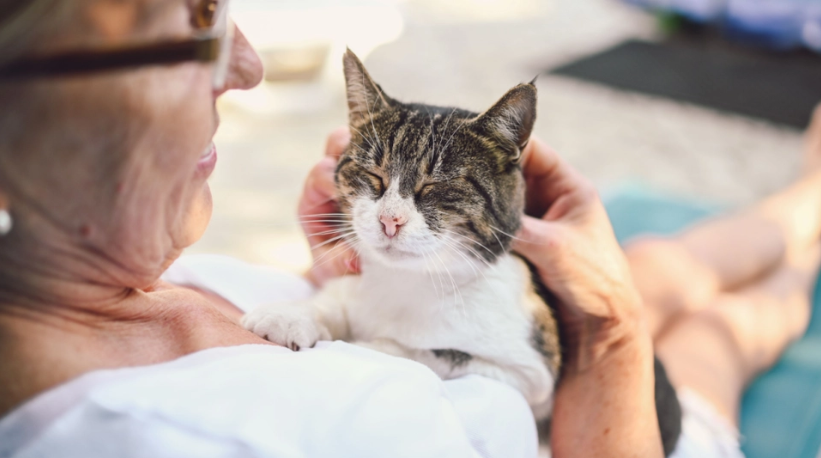If You’re Over 65, Think Twice Before Getting a Cat.
Others are reading now
It turns out that pets don’t always benefit health, especially for the elderly.
Older people often adopt pets, and doctors usually support this decision. It’s no surprise, as cats and dogs help alleviate stress and make their owners feel less lonely. However, scientists have recently discovered that people over 65 should be cautious with cats. This was reported by “Doctor Peter.”
Risk of Infection
Researchers from the USA and Spain conducted a study involving blood samples from 600 people over 65. They found that two-thirds were infected with toxoplasmosis.
This parasite reproduces in the intestines of cats and can enter the human body, typically after the owner cleans the pet’s litter box. Toxoplasmosis can also be contracted if, for example, a cat defecates in a garden and the vegetables, not thoroughly washed, are consumed.
Also read
Doctors note that toxoplasmosis is not dangerous for people with strong immune systems: only one in ten infected individuals develop symptoms, which resemble the flu, including body and muscle aches and swollen lymph nodes.
The team of scientists from the University of Colorado Boulder, the University of Maryland College Park, and the University of La Coruña in Spain notes that in old age, the immune system struggles with such parasites, and a progressing infection can lead to muscle weakness. This results in muscle wasting, increasing the risks of strains and fractures in the elderly. People literally become more fragile.
The article emphasizes that people infected with toxoplasmosis tend to exhibit risky behavior and impulsivity. They also have higher risks of developing schizophrenia and other mental disorders. Additionally, people with toxoplasmosis are more likely to attempt suicide.
How to Protect Yourself
Doctors advise cat owners to change their litter box daily and always wash their hands afterward. Fruits and vegetables should also be thoroughly washed before consumption. It’s better to avoid undercooked meat, like pork or lamb.
In general, elderly people, patients with weakened immune systems, and pregnant women are advised to avoid caring for cats, and someone else should change the litter box. It’s also better not to pick up stray animals.
Who’s Smarter: Cats or Dogs?
After extensive experiments, scientists concluded that dogs have twice as many neurons in the cerebral cortex (the area responsible for thinking and planning) as cats.
The scientists even provided exact numbers: dogs have about 530 million neurons, while cats have only 250 million. For comparison, the human cerebral cortex has about 16 billion neurons.
This suggests that an average Labrador is smarter than an average Maine Coon. The number of neurons in the brain influences an animal’s ability to draw conclusions based on past experiences.
“Total neuron count in an animal’s brain, especially in the cortex, determines the richness of their intellectual capacity and their ability to predict events based on past experiences,” explains Professor of Psychology and Biology Suzana Herculano-Houzel, one of the study’s authors. Experts also suggested that dogs are biologically adapted to more complex mental processes than cats. But there’s an important nuance.
Comparing the brain sizes of cats and dogs, the former’s organ is smaller, especially in larger dog breeds. However, scientists found that cats have a higher density of neurons in the cerebral cortex, indicating that cats are not unintelligent animals. They too can make deductions and learn commands, but given their character traits, they might just be too lazy.
The raccoon was named the “brainiest” by experts: despite its modest size, the number of neurons in its cerebral cortex is almost the same as in dogs. According to scientists’ calculations, the density of neurons in raccoons’ brains is approximately the same as in primates.


